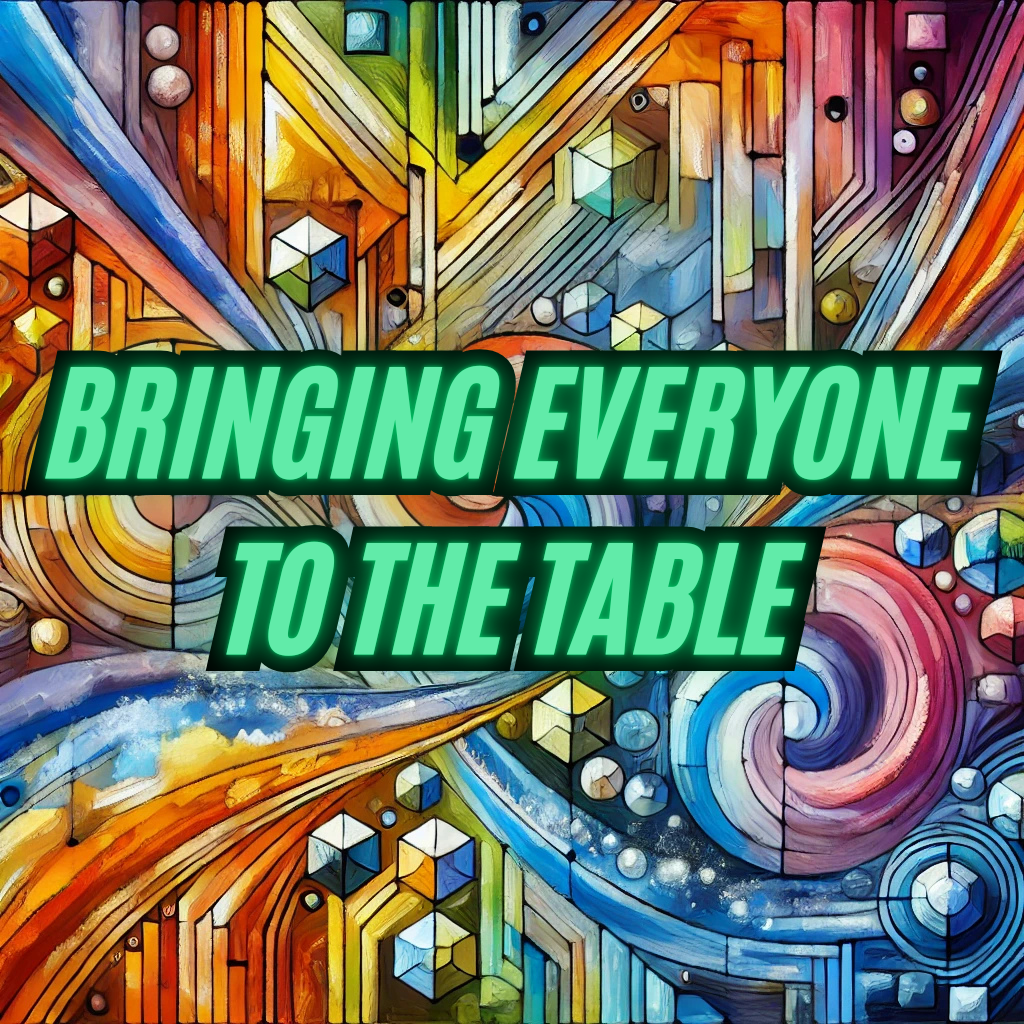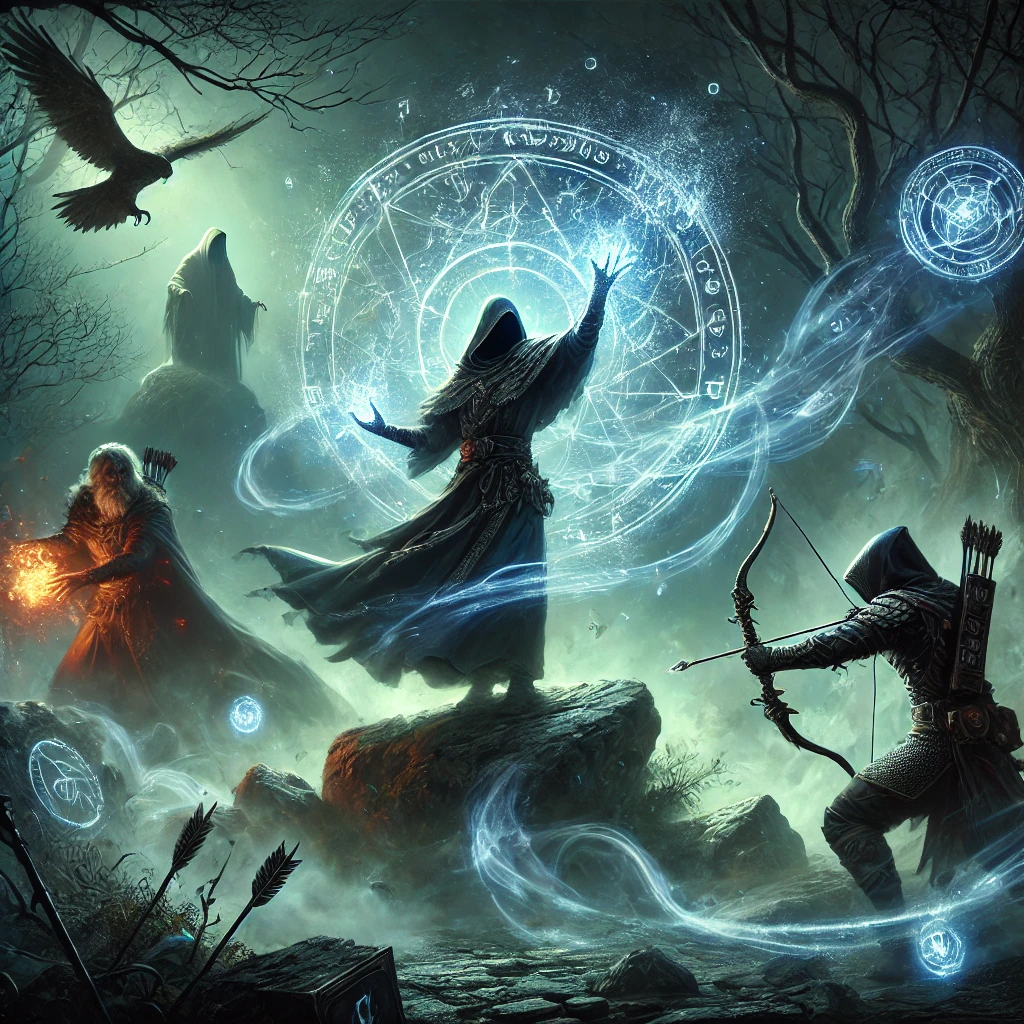Tabletop roleplaying games (TTRPGs) have long been a space for creativity and storytelling, but historically, they have not always been inclusive. Over the past few decades, the industry has seen significant strides toward representation, diversity, and inclusion. However, progress is not uniform, and challenges persist. This article takes a deeper look at the systemic issues that have shaped diversity in TTRPGs, the meaningful changes that have occurred, and the structural barriers that still need to be addressed.
The Historical Context: How TTRPGs Developed
When TTRPGs first gained popularity in the 1970s and 1980s, they largely reflected the cultural norms and biases of their creators—predominantly white, male designers with Eurocentric fantasy influences. Games such as Dungeons & Dragons (D&D) leaned heavily on Tolkien-esque medieval settings, with non-human races often assigned intrinsic behavioral traits, reinforcing outdated notions of biological determinism.
Beyond game mechanics, the industry itself was exclusionary. Many major publishers were gatekept by a lack of diverse hiring practices, leading to homogeneity in storytelling. This impacted the narratives players could engage with and created a feedback loop that alienated potential players from marginalized communities.
Despite these limitations, marginalized gaming communities carved out their own spaces, developing homebrew content that reflected their lived experiences. They created alternative rule sets, cultural interpretations, and storytelling techniques that laid the groundwork for the more inclusive TTRPG landscape we see today.
Structural Changes in the Industry
1. Representation in Core Materials
The representation of marginalized groups in rulebooks, adventure modules, and published campaigns has improved substantially. More contemporary games avoid racial essentialism, opting instead for culturally rich and diverse world-building. However, the presence of token characters or surface-level diversity still persists, meaning that while representation has increased, depth and authenticity are not always guaranteed.
2. Industry Workforce and Leadership
While more people of color, LGBTQ+ individuals, and disabled creators are being hired in the industry, they still face systemic obstacles. Many TTRPG professionals from marginalized backgrounds rely on freelance work rather than salaried positions, limiting financial stability and career growth. Major publishers have made commitments to diversity, but the structural barriers preventing these creators from accessing stable, long-term employment remain largely unchallenged.
3. Game Mechanics and Inclusivity
Game mechanics have evolved in response to growing awareness of bias. Many systems have removed racial ability modifiers, which often reinforced harmful stereotypes, and have implemented safety tools to ensure a more welcoming gaming experience. However, mechanical changes alone are not sufficient; the broader culture of the gaming community also plays a significant role in ensuring inclusivity. Game designers need to move beyond simple rule changes and into deeper, systemic changes in how settings and mechanics engage with themes of identity and culture.
4. The Role of Independent Creators
Independent publishers and crowdfunding platforms have become powerful avenues for underrepresented voices in the TTRPG space. Crowdfunding allows creators to bypass traditional gatekeepers and fund projects that prioritize inclusivity from the ground up. Games such as “Thirsty Sword Lesbians” and “Coyote & Crow” showcase how indie projects can introduce innovative, culturally nuanced storytelling that is often lacking in mainstream releases.
However, while crowdfunding provides an opportunity, it is not a perfect solution. Marginalized creators still struggle with visibility, platform algorithms, and financial constraints that can make sustained success difficult.
Ongoing Barriers and Systemic Issues
While improvements are evident, structural issues persist in several areas:
- Exclusionary Gatekeeping Practices: Even as diversity initiatives increase, some industry veterans and segments of the fanbase resist change, often under the guise of “tradition” or “staying true to the game.”
- Economic Accessibility: TTRPGs can be expensive, and while digital tools have increased access, the cost of books, dice, and subscriptions remains a barrier for many.
- Community Spaces and Harassment: Online and in-person gaming communities still struggle with issues of harassment, particularly towards marginalized gamers who push for more inclusive narratives.
- Corporate Commitment vs. Performative Action: While major publishers release statements supporting diversity, their actions do not always reflect meaningful, long-term change. Hiring practices, pay disparities, and creative control remain areas of concern.
The Future: Where Do We Go From Here?
The push for greater diversity in TTRPGs must continue at every level—design, industry leadership, game mechanics, and community culture. Meaningful progress requires more than just aesthetic changes or token representation; it demands a restructuring of the way stories are told and who gets to tell them.
Actionable Steps for Change:
- Supporting Diverse Creators – Back independent TTRPGs, hire marginalized talent, and advocate for their visibility in mainstream spaces.
- Challenging Industry Norms – Encourage major publishers to make concrete commitments to diversity beyond marketing campaigns.
- Creating Inclusive Tables – Players and GMs must actively foster safe, welcoming spaces in their own games, using safety tools and encouraging diverse participation.
- Amplifying Marginalized Voices – Support podcasts, actual play streams, and game designers who are working to shift the narrative landscape.
The future of TTRPGs is one where everyone belongs at the table—not just as players but as creators, storytellers, and industry leaders. The work is far from finished, but by critically engaging with these issues, we can ensure that the world of TTRPGs becomes truly inclusive and representative of all who wish to take part.




